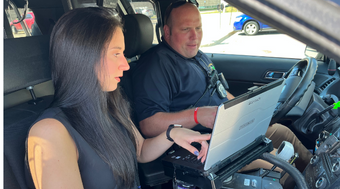-
HOW DO I
Apply For
Find
Pay
Water Testing

-
RESIDENTS
Health & Wellness
Senior & Assisted Living
Environment
Families & Individual Support
Financial Assistance
Library
Safety & Justice
Broadband

-
BUSINESS
Community Development
GIS Mapping
Ordinances
Requests For Proposals
Start A Business
Zoning, Planning & Land Information
Broadband

-
VISITORS
Campgrounds & Shelters
Downtown Guide
Hunting & Fishing
Parks/Facilities
Explore La Crosse

-
YOUR GOVERNMENT
County Board
Ordinances
Resolutions
Elections
Elected Officials
State
Facilities
Municipalities: Cities, Villages and Towns
- CITY OF LA CROSSE
- CITY OF ONALASKA
- TOWN OF BANGOR
- TOWN OF BARRE
- TOWN OF BURNS
- TOWN OF CAMPBELL
- TOWN OF FARMINGTON
- TOWN OF GREENFIELD
- TOWN OF HAMILTON
- TOWN OF HOLLAND
- TOWN OF MEDARY
- TOWN OF ONALASKA
- TOWN OF SHELBY
- TOWN OF WASHINGTON
- VILLAGE OF BANGOR
- VILLAGE OF HOLMEN
- VILLAGE OF ROCKLAND
- VILLAGE OF WEST SALEM
School Districts


News
Co-Responder Program Expanding After Successful Pilot
Monday, September 19, 2022 10:59 AM

The program that pairs county mental health crisis responders with La Crosse police is showing the benefits of collaboration.
A new program that partners police officers with mental health crisis specialists is being expanded after delivering promising results during its first year.
The program sees La Crosse County mental health crisis responders join La Crosse Police Department officers on patrol during certain times of the day.
“They’re right there on scene with us,” said LCPD officer Joel Miller. “There’s no need to make a phone call or wait 20 or 30 minutes for someone to get there, which is a lot of time to fill with someone in crisis.”
The mental health crisis responder may have an existing rapport with an individual that helps during a crisis, said Morgan Wittkowske, a county crisis responder who often partners with Miller. Among the program’s goals are to reduce hospitalizations and incarceration.
“Being on the scene helps us to be really efficient,” Wittkowske said. “We can look at someone’s chart on the laptop and see what they’ve identified as helpful for them with their case worker, or what to avoid in that encounter.”
Since its inception last August, about 250 calls have been handled by the new co-response program. Fifty people have been diverted from a hospital stay. Miller explained that before the model was established, an officer might not have had the time or specialized training to sit with someone in crisis and develop a safety plan. In those instances, an involuntary hospitalization, known as a Chapter 51, may have been more likely to occur.
When Wittkowske or one of her colleagues are immediately on the scene, they can step in and work with the person on a safety plan. They also often follow up with the person later. Some of the people she meets with police may not trust the officer or may not trust the crisis responder. Both being present increases the odds that a rapport can be developed, she said.
During its pilot, the co-response model has been running from 3 p.m. to 7:30 p.m. Monday to Friday. That means during those hours, a police officer is patrolling with a county mental health crisis responder, saving time and resources for both.
“We can’t go lights and sirens to a scene so if we’re not with an officer it may take us 20 minutes to get there,” Wittkowske said. “Sometimes an officer will call us and pass their phone to the person in crisis, but we prefer to be there in person.
State officials have taken note of the county and city co-response model’s early success and recently awarded the county funding to hire two new staff for the program. The new positions will allow the program’s hours to be expanded.
“I definitely feel like we’re doing good work,” Wittkowske said.
The partnership between the county’s Human Services staff and La Crosse Police has been strengthened by the program, she said. Miller agreed and said the result should mean more efficient use of resources and, most importantly, better outcomes for people in crisis the program is designed to help.
The county’s Crisis Intervention Services provide 24-hour mental health services to people in La Crosse County. To talk to the crisis team, call 608-784-4357 (HELP). Services offered included initial assessments, crisis counseling, help developing a crisis plan, and crisis stabilization or placement.
© 2025 La Crosse County. All Rights Reserved.
